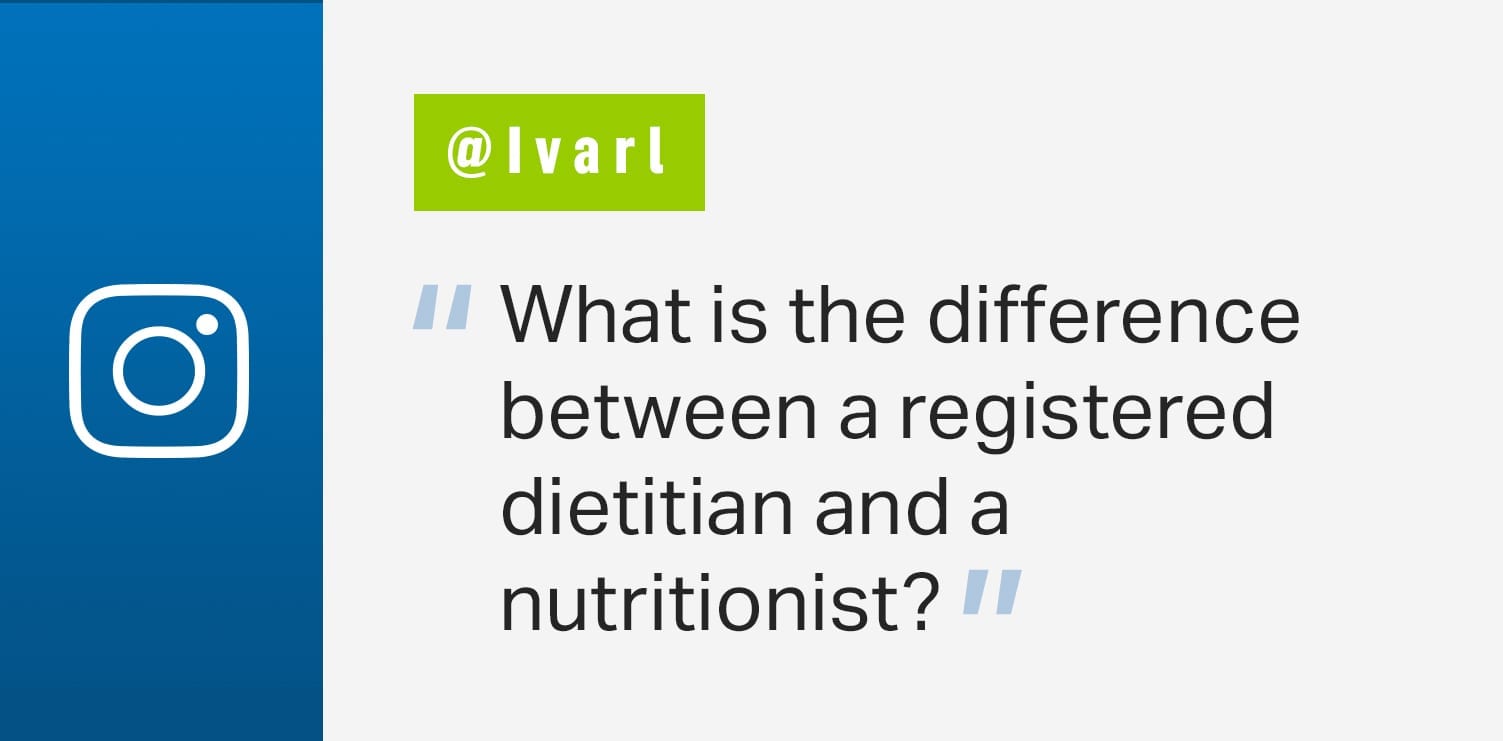

Recently, I took a very informal Instagram poll on the question, “Do you know the difference between a dietitian and a nutritionist?” and the results were pretty surprising. More than 1/3 of responders did not know the difference between someone who is a registered dietitian, RD (or registered dietitian/nutritionist, RDN — both titles can be used by dietitians), and someone who calls themselves a nutritionist or one of the many sub-categories: holistic nutritionist, certified nutritionist, health coach, nutrition expert, nutrition coach, integrative nutritionist, etc.
This is a legitimate question since there are so many health- and nutrition-related practitioners in the real and social media worlds, it’s hard to know who’s who. Education, training, experience and expertise can vary greatly amongst these titles, and often play an important role in how practitioners help individuals achieve health-related goals safely and navigate their way through the plethora of nutrition misinformation that exists.
WHAT DOES IT MEAN TO BE A NUTRITIONIST?
Since “nutritionist” is not a regulated term, anyone can call themselves a nutritionist (or the sub-categories listed above) without education or experience requirements. Some states require a certain number of practical hours and educational degrees in order for individuals to use terms like “certified nutritionist,” but, in general, this is not tightly regulated.
Other courses and certifications for titles such as “integrative nutritionist,” “nutrition coach,” etc. are available, but they are inconsistent in terms of course length, curriculum, regulation and accreditation.
Finally, the term “nutritionist” is not legally accepted or recognized as a nutrition expert, meaning they are not legally able to provide medical nutrition therapy or specific dietary recommendations to clients. They may only give general advice about nutrition and wellness, and this could mean more opinion-based recommendations as opposed to evidence-based ones.
WHAT DOES IT MEAN TO BE A REGISTERED DIETITIAN?
To become (and remain) a registered dietitian, you must check off the following:
- Earn a bachelor’s degree in dietetics, which includes a variety of science education such as chemistry, human physiology, anatomy, biology and biochemistry.
- Complete a 1,200-hour supervised hands-on internship, typically lasting a year.
- Pass a national examination administered by the Commission on Dietetic Registration (CDR).
- Complete ongoing continuing education requirements.
- Abide by a professional code of ethics.
- Starting in 2024, all registered dietitians will also be required to have a Master’s degree in nutrition and dietetics.
Dietitians use evidence-based practice guidelines, which means recommendations for clients are developed using peer-reviewed, scientific research and clinical experience. Dietitians are also legally accepted as nutrition experts and can work in educational and hospital settings.
REGISTERED DIETITIAN MYTH-BUSTING
Some feedback I received from my informal poll, and something I’ve heard during my career, is that the word “diet” in dietitian can be intimidating and lead one to believe restrictive diets are part of what we’d recommend. This would have made more sense 20–30 years ago, but the dietetics profession has evolved so much recently. Dietitians can have many different specialties and many practitioners don’t put anyone on a “diet,” make them cut out entire food groups or only eat salads without the dressing. In fact, there is an entire sub-category of dietitians who label themselves as “non-diet” dietitians, myself included, who focus on things like mindful eating, self-care, enjoyable movement and cultivating a positive relationship with food. Recently, in an effort to soften the title a bit, the Academy of Nutrition and Dietetics (AND) added the word “nutritionist” to the RD credential, making it possible for RDs to call themselves registered dietitian/nutritionists (RDNs).




